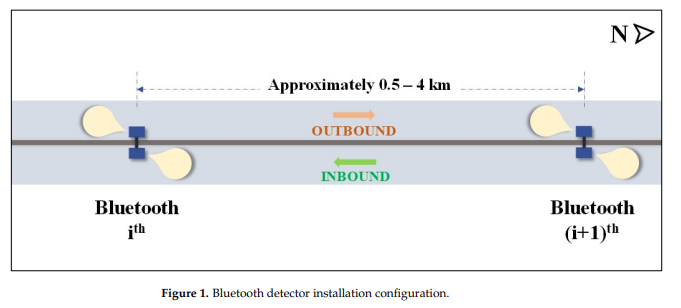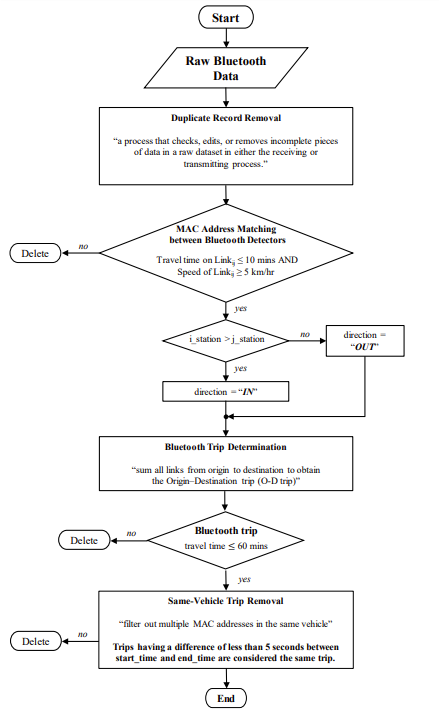There’s recent research from Thailand on Evaluation of Bluetooth Detectors in Travel Time Estimation. The researchers looked into the feasibility of using detected Bluetooth devices to estimate travel time and assess the affect of vehicle speed on Bluetooth detection performance.
Bluetooth provides a compelling method because it’s already transmitting from smartphones, car stereo speakers, wireless headphones and other devices such that dedicated transmitters are not required. Bluetooth devices are also non-intrusive and more affordable compared to other types of traffic sensors and don’t suffer from low light and inclement weather as with the case with automatic license-plate recognition.

A 28 km toll section in Bangkok was used for the study. Bluetooth detectors and microwave radar devices, for comparison, were installed to collect traffic data. The data for 20-days, with 2 million Bluetooth trips, was processed in 5 ways to estimate the travel time.

The resulting Bluetooth trip data was compared with the traffic counts recorded by microwave sensors. For inbound traffic, the detection rates for the study area were in the range of 50–90 percent during the day and 20–50 percent during the night. Slower traffic during peak periods made it more likely for the Bluetooth detectors to detect MAC addresses.